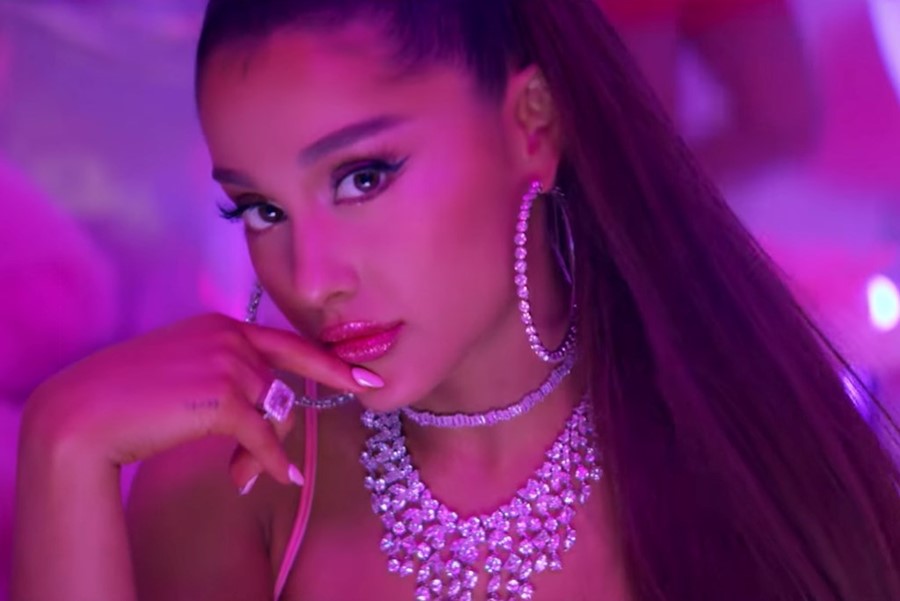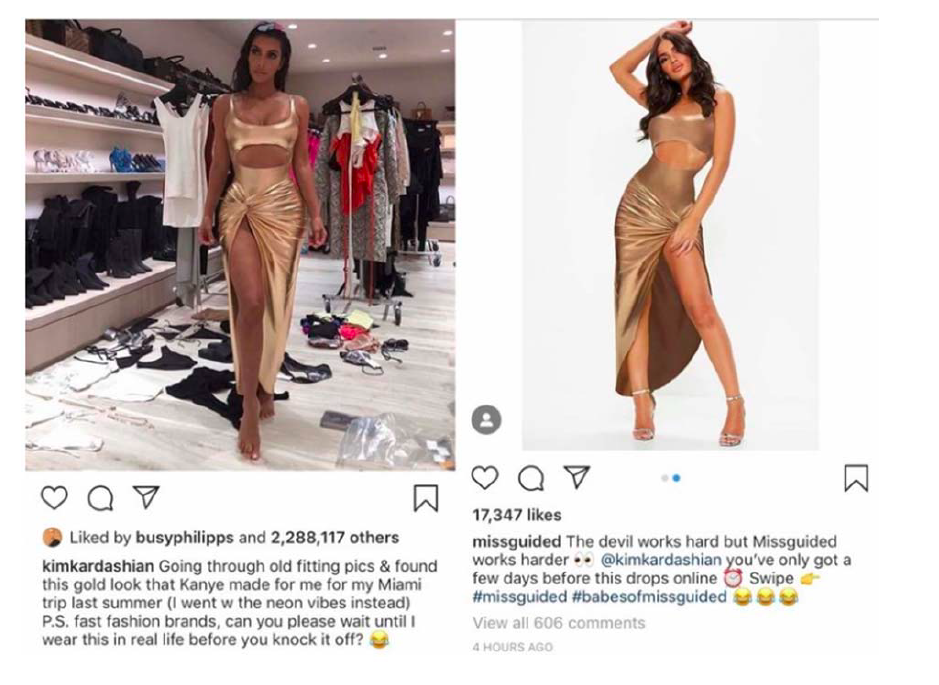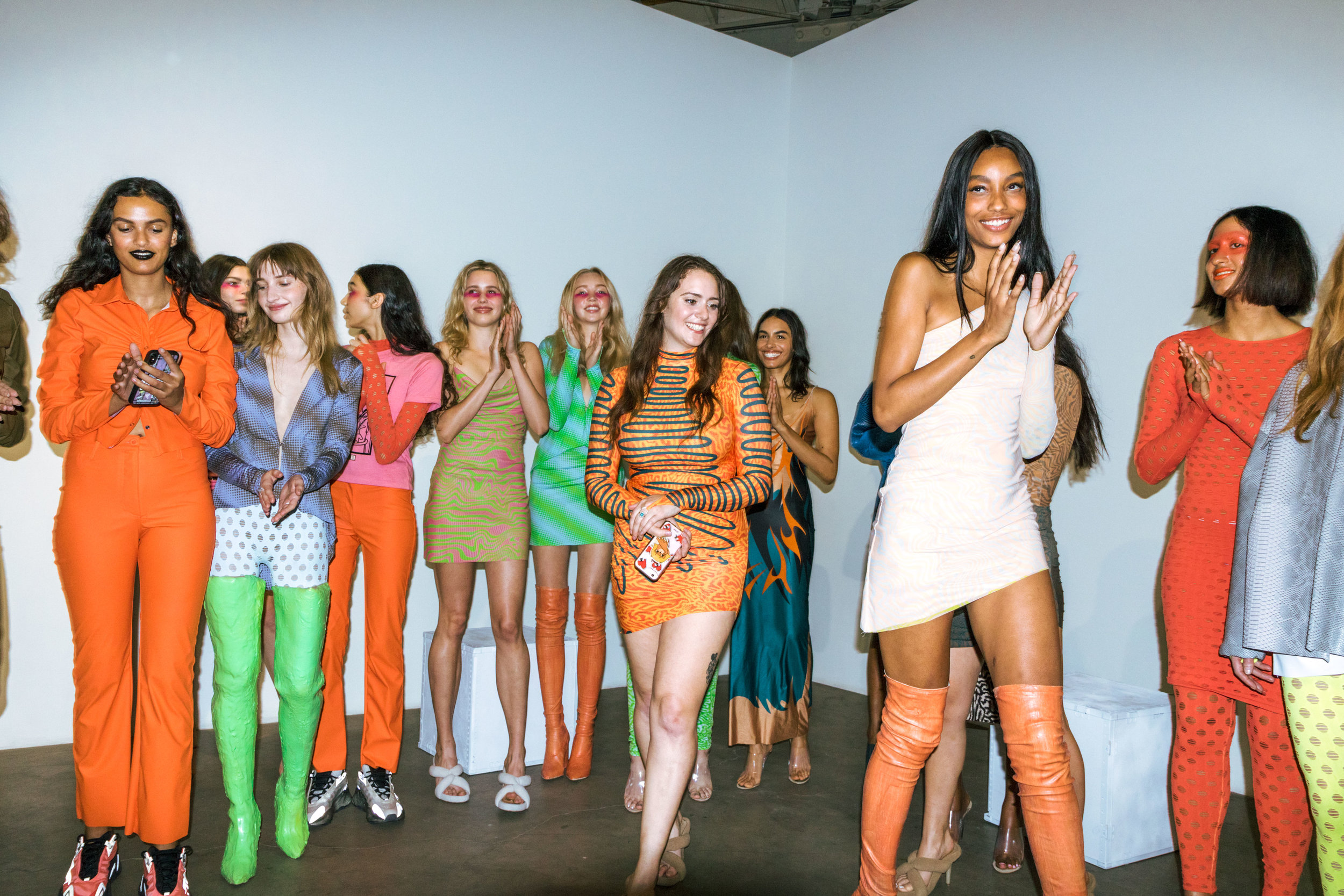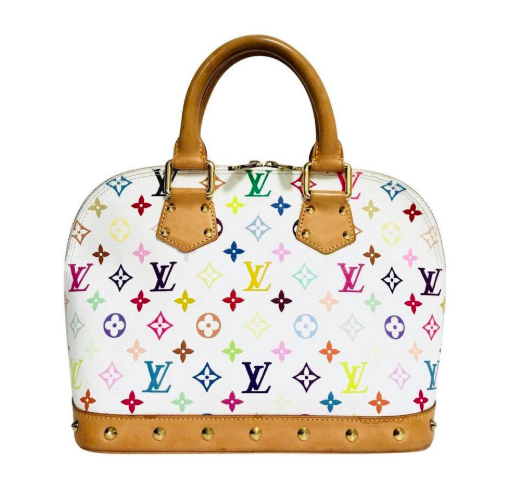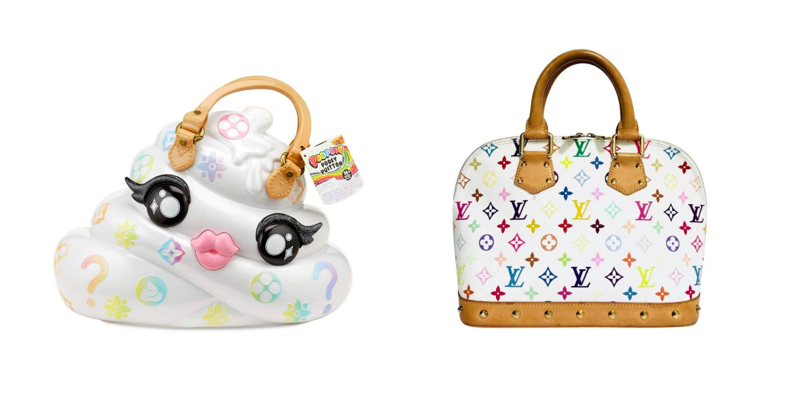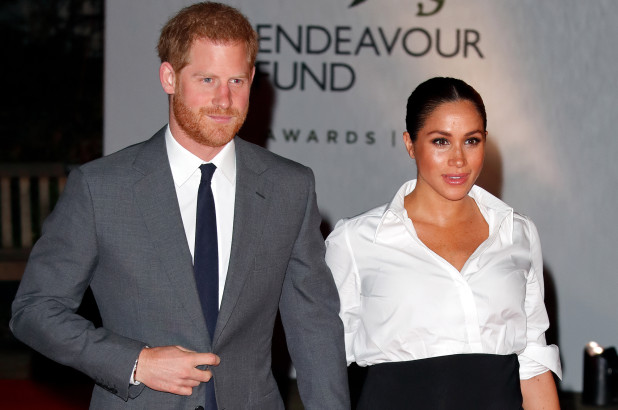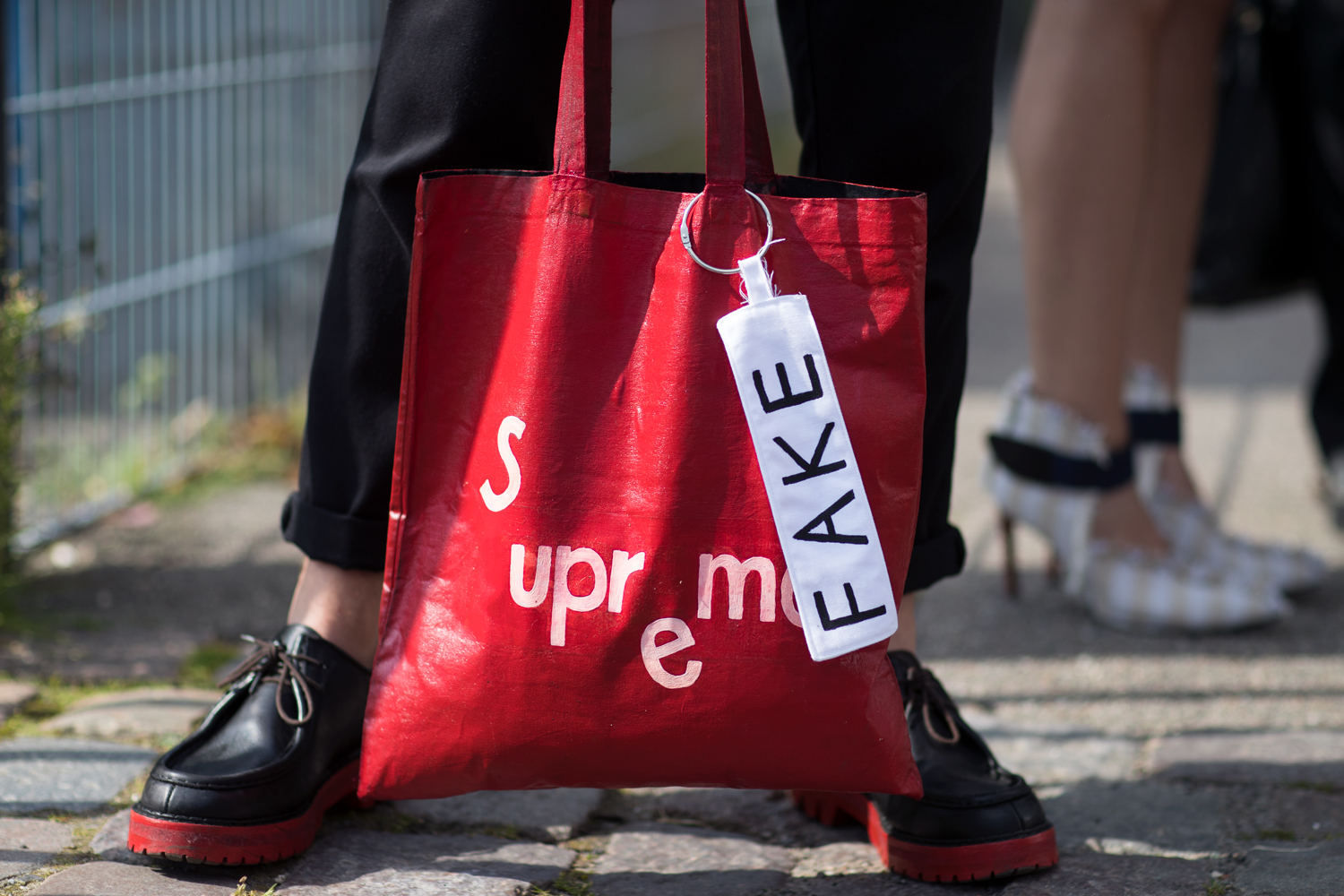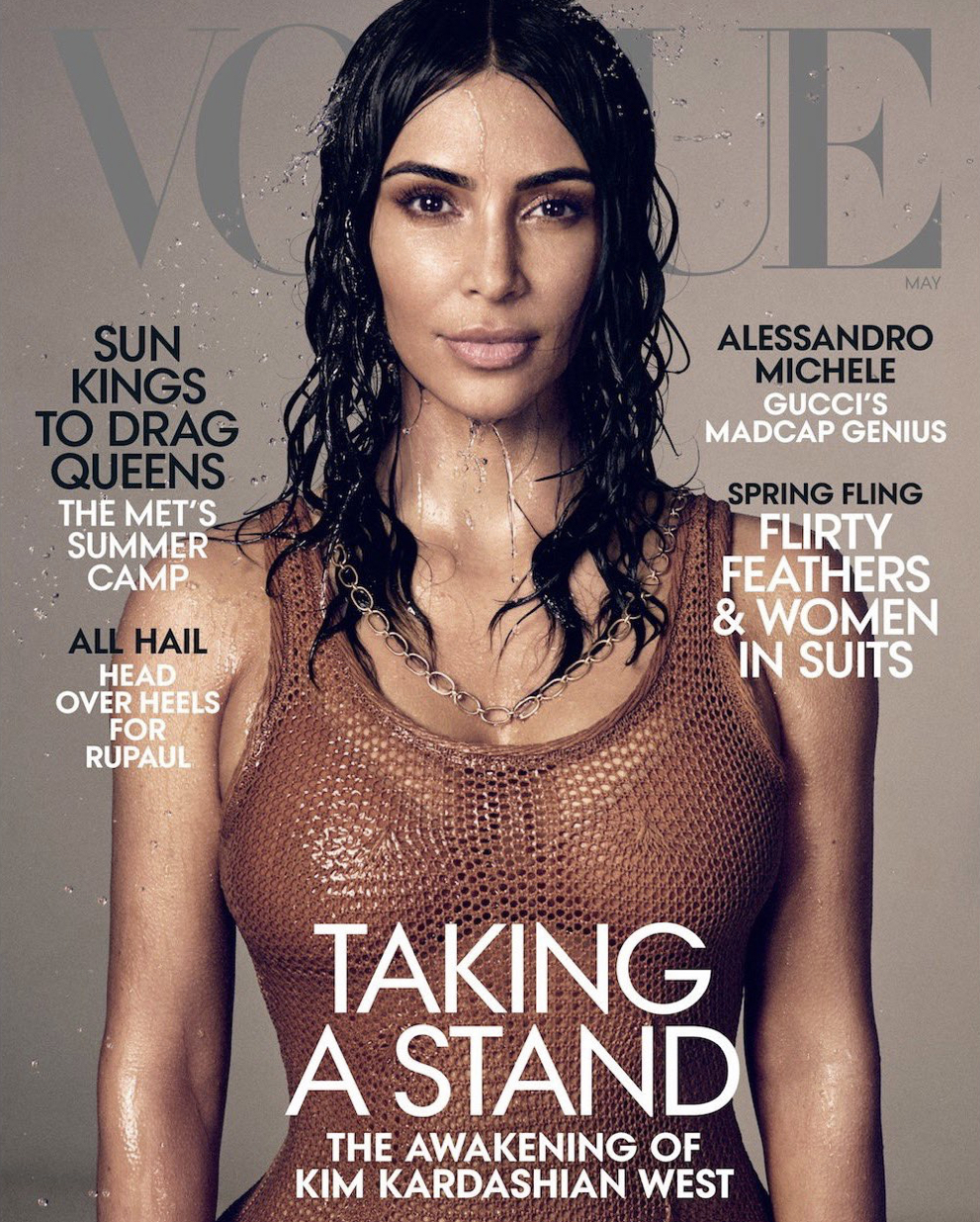GIGI HADID FACES HER THIRD COPYRIGHT LAWSUIT AND HER INSTAGRAM IS TO BLAME (AGAIN)...
This week, Gigi Hadid has found herself at the receiving end of her third copyright suit... and once again it’s her Instagram posts that are to blame. New York-based photographer Robert O’Neil has raised an action against Hadid - real name Jelena Noura - for the “reproduction and public display of a copyrighted photograph” of her then-boyfriend (and apparent “muze”) Zayn Malik.
This past week, Gigi Hadid has found herself at the receiving end of her third copyright suit... and once again it’s her Instagram posts that are to blame.
New York-based photographer Robert O’Neil has raised an action against Hadid - real name Jelena Noura - for the “reproduction and public display of a copyrighted photograph” of her then-boyfriend (and apparent “muze”) Zayn Malik. O'Neil's issue? That she did so without being “licensed or otherwise authorized to reproduce, publicly display, distribute and/or use the photograph” and without “permission or consent” to publish it to her Instagram Story.
The photo itself is subject to protection as a copyrighted image, registered with the US Copyright Office (Registration Number: VA 2-121-470). As the photographer, Mr O'Neil owns exclusive rights under copyright - which Ms Hadid is given no regard to - and he is therefore seeking to claim statutory damages of up to $150,000 or, alternatively, “actual” damages as well as recovering “any profits, gains or advantages” the model has made which are “attributable to [her] infringement”. Cost, expenses, and fees are also sought.
This is not the first time the supermodel - who has worked with brands such as Marc Jacobs, Valentino, Fendi, and Tommy Hilfiger - has been sued for sharing images to her Instagram profiles. In 2017, an image taken by photographer Peter Cepeda was shared without his permission; a lawsuit was filed in the following September but was ultimately settled out of court. Then, in January of this year, Hadid found herself receiving her 2nd suit after photography agency Xclusive-Lee Inc. filed a complaint relating to her sharing a photographer's image, which she later deleted, without license or authorisation, whilst also producing at least 50 examples where Ms. Hadid had shared uncredited photographs of herself. This case led to the now-infamous argument that Hadid ought to be considered a co-author of the image (because she contributed “creative elements” such as smiling and selecting her outfit) which, unfortunately, did not get to play out before the court as the case was dismissed as Xcluive-Lee Inc.’s copyright registration had not been approved prior to the complaint being filed.
Given that Ms. Hadid can not attempt to revive her co-authorship claim in this instance (unless she attempts to lay claim to dressing, styling and instructing Zayn, which would be quite ridiculous), it will be interesting to see how her legal team chose to respond. This case, and others of its kind, brings with it the larger debate around publicity rights and a celebrity's right to control their image - should this extend to limiting the profitability of the paparazzi and the images they produce? And in a society with an insatiable desire for celebrity “news” and gossip what effect should the First Amendment’s caveat that consent is not required when the use of someone’s personality is for a “newsworthy” purpose? Needless to say, we hope Gigi’s team are as creative as they have been in the past, and can’t wait to see what defence they (hopefully) roll out ...
Written by FLB contributor Stephanie Kelly
Ariana Grande Sues Forever 21 for $10 Million Over “Look-alike” Marketing Campaign
Global superstar Ariana Grande is suing the fast-fashion retailer Forever 21 for $10 million according to a lawsuit filed earlier this month, after the fast-fashion firm allegedly “stole her name, likeness and other intellectual property to promote their brands for free”.
Global superstar Ariana Grande is suing the fast-fashion retailer Forever 21 for $10 million according to a lawsuit filed earlier this month, after the fast-fashion firm allegedly “stole her name, likeness and other intellectual property to promote their brands for free.”
Over a period of almost six months (from November 30, 2018 until at least April 17, 2019), Forever 21 shared at least 30 images of Ms Grande on their Instagram account (@forever21) as well as using image captions quoting the singer’s lyrics, and overlaying posts with excerpts from the multi-platinum selling single 7 Rings. Additionally, it is claimed that Forever 21 purposely hired a “look-alike model” who was styled in clothing and a “distinctive hair accessory” both designed and emulate the singer's well-known image, as well as posing the model alongside in a “virtually identical” manner. The complaint then goes on to state that this shows a “clear intent” to suggest to the public that Ariana Grande was affiliated with Forever 21 and endorsed their products.
Images from court documents
In light of Forever 21’s actions, a six-part claim for relief has been submitted, stating that the clothing brand have violated Ms Grande’s statutory Right of Publicity (Cal. Civ. Code §3344) and Common Law Right of Publicity; committed offenses of False Endorsement and Trademark Infringement (15 U.S.C. §1125(a) and §1114(1) respectively); committed Common Law Trademark Infringement and also committed Copyright Infringement. All but one of the claims seeks damages of “no less” than $10 million, with some also including a request for treble damages on the grounds that Forever 21 acted “willfully, knowingly and maliciously” to deceive and confuse the relevant public. The claims also requests that the damages sought ought to be “punitive and exemplary” to “punish and deter” such acts.
According to the complaint filed by Ms Grande’s legal team, the singer was previously in discussions with Forever 21 - and sister brand Riley Rose - about an official partnership, however the the brand were unable “unwilling” to pay the “fair market value” for Ms Grande’s celebrity status which, according to documents filed, is “several hundred thousand dollars” for one single social media post cost brands and “millions” for longer-term endorsements. The claim goes on to outline the financial decline of the LA-based clothing company, who are preparing to close over 100 stores and are allegedly heading towards bankruptcy, and claims that the unauthorised use of Ms Grande’s image and likeness were a “desperate attempt to stay relevant and profitable”. Ouch.
Over, the facts of this case are not dissimilar to those in the recent Kim Kardashian-West v Missguided case, which ruled in reality stars favour to the tune of $2.8 million. We’d be surprised to see the case at hand resolved any other way, given the precedent now set, but we know better than to predict the actions of any court… More on this soon, we suspect.
Written by guest writer Stephanie Kelly
The Latest: Kim Kardashian is Still Locked In A Legal Battle With Missguided Over The Use Of Her Image And Name
Recent court documents filed this week, reveal that Kim Kardashian is seeking a default judgement entitling her to damages in excess of $5 million from retailer Missguided for their ‘systematic’ use of her identity or likeness as means to confuse or mislead consumers into the belief that an affiliation exists between the parties.
The Latest: Kim Kardashian is Still Locked In A Legal Battle With Missguided Over The Use Of Her Image And Name
Image via court documents/legal complaint
Recent court documents filed this week, reveal that Kim Kardashian is seeking a default judgement entitling her to damages in excess of $5 million from retailer Missguided for their ‘systematic’ use of her identity or likeness as means to confuse or mislead consumers into the belief that an affiliation exists between the parties.
After receiving the original complaint in February of this year, in which Kim Kardashian sought damages of an amount “no less than $10 million”, Missguided (represented by Brandsmiths, London), have “strategically defaulted” in this case with their representatives allegedly confirming that neither their US nor UK entity would be responding to the complaint filed.
Consequently, on June 10th 2019, Kardashian’s representatives (Kinsella Weitzman Iser Kump & Aldisert LLP, California) have now submitted a motion for a default judgement in their favour, requesting that the court award $5,000,000 in damages – the ‘conservatively estimated’ market rate Kim would have charged had a legitimate commercial or licensing relationship existed – plus $103,600 in legal fees.
The Claim
The claim itself rests upon the contention that Missguided have wrongfully appropriated Kim Kardashians name, image and persona in a manner which infringes both her right of publicity and also her rights as a trademark holder. With regards to the latter, Kardashian claims that Missguided have used her registered trademarks – namely “KIM KARDASHIAN” and “KIM KARDASHIAN WEST” – or confusingly similar marks in a way “likely to confuse consumers into believing she is affiliated with, or sponsors or endorses, Missguided and its website and products”, going on to reference an article written by The Fashion Law entitled “Kim K and the Copycats: Fast Fashion at its Quickest or a Marketing Ploy in Disguise?” (posted on 11 February 2019) Kim’s legal team argue that the article’s reference to the speed with which Missguided had been able to post images of a knock-off version of the gold dress worn by Kardashian and the authors proffered that this may well be the result of “a coordinated marketing ploy between the mega-influencer [Kardashian] and the millenial-centric fashion company.” As evidence, as per the complaint that the “consuming public has come to the mistaken conclusion that she is affiliated with Missguided and is working hand in hand with the company to create “fast fashion” versions of her clothing.”
With regards to the claim stated under the right of publicity, the “wholesale” use and appropriation of Kim’s identity (which can include name, image or likeness amongst others) without her consent and for commercial purposes is said to be the “epitome of a right of publicity violation” to which no First Amendment defence can be applied. As evidence of these claims, Kardashian’s representatives produced a number of screenshots from Missguided’s website and social media platforms in which they have shared pictures of Kim and her family often alongside calls to action such as “shop this fire dress” and “shop kim k.” Many of these images have also been edited to include Missguided branding and/or the addition of Missguided’s products.
Image via court documents
Interestingly, the existence of this right to publicity under both common and statutory law may be the reason that action has been pursued in California rather than in the United Kingdom (the primary place of business for Missguided), where no equivalent right exist. Despite Kardashian’s lawyers putting forward a number of arguments supporting their use of the Californian forum - namely that Missguided direct their commercial activities towards the US more generally, but specifically California through sponsoring Coachella events and targeting attendees of the Indio festival – this case still gives rise to questions of forum shopping and opens the door to interesting considerations as to how this new breed of influencer would be protected should a similar action be raised before the UK judiciary. (Albeit still, history shows us that in the UK celebrities may be able to obtain some legal relief under the common law doctrine of passing off – touted as the UK equivalent of the U.S right of publicity in pursuit of protecting the commercial value of a celebrity personality).
Image via court documents/legal complaint
The Damages
In order to establish that the monetary damaged sought were appropriate in relationship to the seriousness of the claim, Kardashian and her legal team provide statements attesting to prior and on-going commercial relationships valued at $300-500k for a single Instagram post as well as long-term licensing agreements with a “wearable consumer goods” manufacturer under which Kardashian receives $6 million per annum and is granted a “significant equity interest” in the company. On this basis, they contend that Missguided’s continual use of Kim’s trademarks and likeness has a “fair market value” of “no less than $5 million, and Kardashian would never have licensed [this] use of her persona for less.”
It is further claimed that the conduct of Missguided has “damaged Kardashian’s credibility”, diluted her brand and “threaten[ed] her ability to negotiate endorsement deals with law-abiding companies that seek her support, who will be less inclined to hire Kardashian if she is perceived by the public as indiscriminately endorsing a multitude of brands.” In her own statement, Kim claims that she “work[s] very hard to ensure that [her] brand means something to my fans and to the public, who view the use of my name as the stamp of approval” and states that the loss of her ability to oversee product associations discourages companies who seek exclusivity in their deals with her. She goes on to state that Missguided’s posts have damaged her credibility not only insofar as they serve to contradict her previous criticisms of the “fast fashion” industry but also through the suggestion that she has “secretly collaborated” with them to replicate the designs she wears (she states she would “never betray” the designers she works like this).
In addition the monetary damages sought, the motion also requests that the Court grant a permanent injunction to prevent any future use of Kim’s “name, images, likeness, persona, and trademarks in connection with any product or service sold, marketed, or distributed by [Missguided]”. It is argued that Kardashian has been irreparably harmed through the loss of control of her reputation and the confusion of the pubic as to her relationship or affiliation with Missguided and that the award of damages alone does not amount to an adequate remedy as it does not prevent any future or continuing violate of her rights. At this stage, no punitive damages have been sought however Kim’s lawyers do make a point of suggesting that the $5,000,000 + fees claimed is a “fraction” of the potential recovery that may be awarded in a trial held on the merits of the case.
What Next?
And now we wait …
With the motion for default judgement now filed, the Court may rule based solely on the paperwork submitted or the case may process to Court proceedings, at which point Kim may find herself fighting her case before a judge … So, who knows, perhaps as this unfolds we will get a sneak peek into Ms Kardashian West’s new legal career sooner than we thought.
Written by guest writer Stephanie Kelly
LVMH's new blockchain tool could spell the end for counterfeit goods
Fashion has been notoriously slow to embrace advancements in technology. But as consumer appetite for transparency grows, huge conglomerates are looking to an innovative technique: the blockchain. Sounds complicated, but it’s a rather simple concept.
LVMH's new blockchain tool could spell the end for counterfeit goods
Fashion has been notoriously slow to embrace advancements in technology. But as consumer appetite for transparency grows, huge conglomerates are looking to an innovative technique: the blockchain. Sounds complicated, but it’s a rather simple concept.
Invented in 2009 as a way to track Bitcoin transactions, blockchain technology allows stakeholders to enter uneditable information. The more entries or “blocks” that are added, the longer the chain becomes. And instead of just being able to see the latest addition, viewers of a single blockchain can see every entry including authors, dates and times.
In fashion’s case, it’s a useful way to detail the supply chain of an item and prove its authenticity. So it’s no surprise to hear that LVMH — the company that owns numerous luxury brands from Louis Vuitton and Christian Dior to Fendi and Givenchy — has developed its own blockchain tool.
Debuting the tech at Paris’ VivaTechnology fair, the conglomerate announced that Louis Vuitton and Parfums Christian Dior would be two of the first brands to adopt it. According to partner company ConsenSys, the tool is named Aura and uses Ethereum blockchain technology along with Microsoft’s Azure services.
Any person that buys an Aura-certified product will be able to see the full history of the item, ranging from its raw materials and manufacturing locations to where it was initially sold. Any secondhand purchases will also be noted. This lifecycle will be met with instructions relating to product care and warranty, making it a one-stop source for inquisitive consumers. LVMH also announced that it is willing to share its development with other luxury houses and groups, allowing the entire industry to benefit.
Such technology is particularly important right now. Not only will it satisfy any environmental or ethical concerns, but it will hopefully lead to a drop in counterfeit sales. Currently, people wanting to buy a secondhand luxury item may turn to social media accounts or one of many resale sites. While the former evidently comes with a barrage of issues, the latter is also not a guaranteed marker of authenticity. In November 2018, Chanel filed a lawsuit against consignment site The RealReal, claiming that the site has sold counterfeit bags and that its authentication experts are not “properly qualified or trained” to carry out such checks.
Blockchain technology can swiftly put an end to arguments over whether an item is real or fake. It can also help brands in a number of other ways. For example, intellectual property documents can be added to the chain, legally protecting certain designs. The tool is also a way of accurately managing inventory stock.
However, LVMH’s Aura and blockchain in general may not be the complete answer the luxury world is looking for. The technology cannot verify whether information is accurate, potentially allowing a particular stakeholder to distort the truth. And if a false statement is entered, it can’t be altered or deleted.
There is also the issue of whether other brands will want to take up LVMH’s offer. Although Aura is a decentralised tool (meaning that no one person or company controls it), having a rival name as its creator may push some companies to look elsewhere.
Aura isn’t the only blockchain name on the market. Arianee and VeChain have been trying to drum up luxury business too. But whichever developer luxury brands decide to go with, it can’t be denied that blockchain is currently the best way of proving an item’s status. And that is something that both consumers and CEOs will lap up.
Are celebrity mentors the new way to boost budding designers?
Rapper, songwriter, designer, entrepreneur and now mentor. Earlier this week, Kanye West announced he would be setting up an incubator for emerging designers. Not only will he be providing guidance and resources but also vital financial assistance.
Are celebrity mentors the new way to boost budding designers?
Image credit: @devinkasparian instagram
Rapper, songwriter, designer, entrepreneur and now mentor. Earlier this week, Kanye West announced he would be setting up an incubator for emerging designers. Not only will he be providing guidance and resources but also vital financial assistance.
Although this is the first time the world has heard about West’s initiative, it appears to have been going on for a number of months. His first protégé is Yeezy womenswear designer Maisie Schloss. Her brand, Masie Wilen, is already set to debut an 85-piece collection to the industry with Los Angeles and Paris presentations scheduled for this month. (A quick look at Schloss’ LinkedIn shows she has worked for West’s Yeezy since December 2015. Her company, Yeezy-Schloss, has been active since October 2018.)
“Yeezy is a really special environment for growing and developing a career. When I started I was just an assistant, but the highly creative and unconventional atmosphere allowed for me to have visibility and input in a wide variety of projects,” Schloss recently told Vogue, adding: “Kanye very generously offered to support me; he truly cares about sharing resources, creating opportunities for creatives to grow and be recognised.”
But the 41-year-old isn’t the only star using their business acumen to help up-and-coming talent. Rihanna, too, is allowing young creatives into the Fenty fold. As well as hiring more established names from the likes of Louis Vuitton and Celine for her new luxury house, Rihanna also enlisted the help of Conner Ives. A Central Saint Martins graduate, he is famously known for designing model Adwoa Aboah’s 2017 Met Gala gown. Two days later, Rihanna herself stepped out in Ives’ Scarface T-shirt dress. It’s true that Rihanna isn’t handing over money to fund Ives’ own label. However, the connection alone may be enough to build his reputation.
So is getting under a celebrity’s wing the new key to fashion design success? Arguably, the hardest parts of being an emerging talent are finances and making yourself known to both the industry and consumers. A big name backer like West or Rihanna can certainly help with both.
Let’s start with the former. Unlike the tech world, investors are not knocking on the doors of fashion designers who are yet to make a profit. According to CFDA CEO Steven Kolb, this only happens when a brand becomes a “10, 15, 20, 25 million dollar business,” reports Fashionista. New designers therefore have to find the money to pay for materials, machinery, assistants, shows, PR, their own salary… The list goes on. Of course, certain initiatives such as the British Fashion Council’s NewGen exist to help with the financial side. But only a few names are selected each year.
Then there’s the much-needed exposure. Having a large and lively Instagram presence used to work. But as Loewe and JW Anderson creative director Jonathan Anderson told the Evening Standard, social media has been overrun by brands with money. “There was this moment where social media was great for young brands because the big brands weren’t using it. Now big brands can invest in it and, like magazines, buy market share,” he said. “So it becomes harder for the smaller brands to exist in that system.”
Those who don’t come from a wealthy background have only one other accessible option: develop personal relationships. And what better friend than a multi-millionaire with a loyal following, major influence and industry savviness? The support of a celebrity offers myriad benefits. They can expose a designer’s work to millions of people across the globe, provide enough financial assistance to allow creativity to soar, and, for those with fashion experience, can teach vital business lessons.
Rihanna and West are two unsurprising figures to start off this “trend”. Both have catapulted a diverse cluster of unknown names to design stardom simply by wearing their clothes. More importantly, both have never subscribed to a traditional way of thinking; something that can easily stunt a young designer’s growth.
Rihanna’s new luxury house, Fenty, is swapping expensive shows and stores for streetwear-esque online drops. With a $600 million net worth, Forbes recently named the 31-year-old the world’s richest female musician. Not for her musical talents, I might add, but for her Fenty Beauty achievements. (The cosmetics company generated $570 million of revenue in 2018.) Most people would agree with the following: anything with Rihanna’s backing almost guarantees financial success.
The precise value of West’s incubator financial backing is unknown, but even his expertise is worth its weight in gold. As Hypebeast reports, Yeezy — a clothing and footwear line that West started with adidas in 2013 — is said to have received a $1.5 billion valuation last August. Yeezy’s sartorial half may never have received the critical response that its creator yearned for, but the footwear portion took West’s dream path. His sneakers went from highly-coveted limited release items to readily available pieces. Despite many doubts, West’s prediction — “Eventually, everybody who wants to get Yeezys will get Yeezys” — has finally come true.
Taking on a mentorship role is therefore a natural step for fashion-obsessed, business-minded celebrities. And tech-style incubators or good old-fashioned A-list support are viable guardians for any struggling creative. Just one word of caution for emerging designers: be careful who you associate your brand with. The last thing you want is a controversial statement slicing your customer base in half.
Written by Lauren Sharkey fashion features contributor at Fashion, Law & Business
U.S Court Sides With Louis Vuitton Over Poopsie Pooey Puitton Case
A US district Judge has dismissed a lawsuit between fashion brand Louis Vuitton and MGA Entertainment poop-shaped toymaker of purse called ‘Pooey Puitton.’ Louis Vuitton was sued by maker of 'Pooey Puitton' poop-shaped purse handbags, back in December 2018. MGA sought a court declaration that Pooey Puitton did not infringe Louis Vuitton's intellectual property rights, and is protected parody and fair use.
U.S Court Sides With Louis Vuitton Over Poopsie Pooey Puitton Case
MGA’s Poopsie Pooey Puitton Left and Louis Vuitton Takashi Murakami designed bag Right
A U.S district Judge has dismissed a lawsuit between fashion brand Louis Vuitton and MGA Entertainment, toymaker of the poop shaped handbag purse called ‘Pooey Puitton.’
Louis Vuitton was sued MGA Entertainment, back in December 2018. MGA Entertainment brought a lawsuit against Louis Vuitton in the U.S. after Louis Vuitton had filed an trademark action against MGA Entertainment in a French court alleging that the Pooey Puitton name (the “Pooey Name”) and product (the “Pooey Product”) infringed upon and disparaged certain E.U. trademarks owned by the French fashion house.
On the back of this, MGA filed a separate case in the U.S seeking a court declaration that Pooey Puitton did not infringe Louis Vuitton's intellectual property rights, and is protected parody and fair use, and that MGA should be able to continue to market and distribute the Pooey Product to use the Pooey Name.
Justifying it’s grounds for bringing the U.S lawsuit, MGA claimed that by filing an action in France alleging violation of its E.U. trademarks, Louis Vuitton had “asserted claims against MGA and its customers in the United States related to U.S. trademarks.”
Louis Vuitton filed a Motion to have the U.S case dismissed.
On Wednesday 14th May, in what can be read as a victory for the brand. Judge John Walter of the US District Court for the Central District of California has dismissed the lawsuit, after finding that MGA Entertainment (the maker of Pooey Puitton) “had failed to establish an actual controversy between the parties.”
Turing to the issue of allegations about other cases, Walter rejected MGA’s claim that Louis Vuitton’s recent filing in France of trademark infringement against MGA Entertainment, demonstrated the French company’s “history of not respecting parody rights in the United States.”
According to Judge Walter J “Rather than looking at past behavior concerning other unrelated companies and products to determine whether there is an actual controversy here, the Court need look only to the fact that Louis Vuitton has not sued MGA based on its trademark rights in the U.S., while it has initiated proceedings in France. These past events do not support the finding of a case or controversy.”
The case has been dismissed with prejudice, meaning that it cannot be brought back to court again. Whilst this is the case, litigation is still ongoing in the French courts on this matter, so we will await to see what happens.
More on this case can be read here
Major French Fashion Houses Pledge To Only Employ Models Over The Age of 18
Gucci, Balenciaga and Alexander McQueen are among the leading fashion brands who have pledged to ban the working with models under the age 18. Kering group has made a commitment that the group’s Houses will only hire models aged over 18 to represent adults at their fashion shows and advertising campaigns. The new age restriction, which will be enforced in early 2020, was announced by Francois-Henri Pinault, the chairman and CEO of the Kering group.
Major French Fashion Houses Pledge To Only Employ Models Over The Age of 18
Image credit | Eva Al Desnudo @fashionlawbusiness
Gucci, Balenciaga and Alexander McQueen are among the leading fashion brands who have pledged to ban the working with models under the age 18. Kering group has made a commitment that the group’s Houses will only hire models aged over 18 to represent adults at their runway shows and advertising campaigns. The new policy which will be enforced starting with the fall/winter shows 2020/2021 next year was announced by Francois-Henri Pinault, the chairman and CEO of the Kering group this week at the Copenhagen Fashion Summit.
“As a global luxury group, we are conscious of the influence exerted on younger generations in particular by the images produced by our houses, We believe that we have a responsibility to put forward the best possible practices in the luxury sector and we hope to create a movement that will encourage others to follow suit.” Said Pinault in a press release
The decision comes as the fashion industry take more positive steps to adhere to more ethical standards. In 2017, Kering and in collaboration with luxury conglomerate LVMH -published a charter on models' well-being, which set the minimum working age at 16. It aimed to introduce a range of guidelines to safeguard the health and well-being of models, involving a commitment to work only with models in possession of a valid medical certificate certifying their good health; the banning of size 32 for women and size 34 for men from casting and the application of specific rules for the working conditions of models, such as access to a “reserved area” where they can change conveniently and the availability of food and drink that are suited to their dietary needs.
Last year, Condé Nast International the publishers of British Vogue, GQ, Glamour, Vanity Fair (among other titles) announced a new Code of Conduct “to safeguard the dignity and well-being”of all models who work with its brands with immediate effect.
This new step signals further industry progress and marks a reaffirmation by the luxury conglomerate group Kering to protect model welfare. The question is, will the rest of the fashion industry follow suit?
According to “Marie-Claire Daveu, Chief Sustainability Officer and Head of International Institutional Affairs at Kering “The physiological and psychological maturity of models aged over 18 seems more appropriate to the rhythm and demands that are involved in this profession. We are also aware of the role-model element that images produced by our Houses can represent for certain groups of people,” declared Daveu.
Prince Harry Wins “Substantial Damages” For Infringement of Privacy Over Aerial Photos Taken of His Cotswold Home
The Duke of Sussex has accepted substantial damages and welcomed a formal apology from Splash News and Picture Agency over aerial photographs taken of his home in Oxfordshire, says Buckingham Palace. In court documents, lawyers for the Duke of Sussex documented how Splash News and Picture Agency, a well-known paparazzi agency, flew a helicopter over the Duke and Duchess of Sussex’s Oxfordshire property, taking pictures of “the living area and dining area of the home and directly into the bedroom.”
Prince Harry Wins “Substantial Damages” For Infringement of Privacy Over Aerial Photos Taken of His Cotswold Home
The Duke of Sussex has accepted substantial damages and welcomed a formal apology from Splash News and Picture Agency over aerial photographs taken of his home in Oxfordshire, says Buckingham Palace.
In court documents, lawyers for the Duke of Sussex documented how Splash News and Picture Agency, a well-known paparazzi agency, flew a helicopter over the Duke and Duchess of Sussex’s Oxfordshire property, taking pictures of “the living area and dining area of the home and directly into the bedroom.”
The pictures were published by the Times newspaper and elsewhere online. On 11 January 2019, soon after the images appeared online and across national media outlets the Duke of Sussex, represented by the law firm Harbottle & Lewis LLP wrote to the Splash, bringing a legal claim against the paparazzi agency. The principal cause of action claimed by his Royal Highness the Duke of Sussex being “misuse of private information, breach of the Duke’s right to privacy, GDPR laws and the Data Protection Act.”
The parties have now reached an out of court settlement on the action and granting permission for an open statement on details of the settlement to be read out on the Duke’s behalf in court today, Judge, Barbara Fontaine Senior Master, Queen's Bench Division ruled that “the evidence supports the position” that the photographs in question “did undermine in a serious way the safety and security of the applicant and his wife”.
The court statement read out by the Duke’s lawyer, Gerrard Tyrrell added: “On 9 January 2019 Splash chartered a helicopter for the purpose of taking photographs and recording video footage of The Duke's private home In Oxfordshire. The property had been chosen by the Duke for himself and his wife given the high level of privacy it afforded given its position in a secluded area surrounded by private farmland away from any areas to which photographers have access. The helicopter flew over the home at a low altitude allowing Splash to take photographs of and into the living area and dining area of the home and directly into the bedroom.”
“The photographs were taken for commercial gain and syndicated for that purpose....No consent was given to the actions taken by Splash. The Duke has had to engage his solicitors to take steps to try to secure the removal of the photographs from these websites.”
“The syndication and publication of the photographs very seriously undermined the safety and security of The Duke and the home to the extent that they are no longer able to live at the property.”
In the statement, the court heard that Splash had agreed to pay a substantial sum in damages and legal costs, which has not been disclosed, the paparazzi news agency has also undertaken to “cease and desist selling from selling, issuing, publishing or making available the photographs or any photographs which are the same or colourably similar, and, second, that it will not repeat its conduct by using any aerial means to take photographs or film footage of the Duke's private home which would infringe privacy or data rights or otherwise be unlawful activity."
The settlement reflects the increased use of the law by celebrities and public figures for redress against the intrusive lens of the Paparazzi media. In 2017 the Duke and Duchess of Cambridge were awarded £91,000 in damages by a French court, against the celebrity magazine Closer one of the biggest publishing companies in Europe, after the court ruled that topless photos taken of the Duchess of Cambridge Kate on holiday at a private residence in the Luberon region of Provence were an invasion of the couple’s privacy.
Splash in an open statement sent to Britain's Press Association news agency on the case, admitted that the situation represented an “error or judgement” and that they “have taken steps to ensure it will not be repeated.”
The case: His Royal Highness the Duke of Sussex v Splash News and Picture Agency Ltd & anr (Before Mr Justice Warby)
Instagram's Counterfeit Problem Is Becoming Worryingly Big
New research has revealed that counterfeit goods are growing at an alarming rate on Instagram. Analytics company Ghost Data studied the level of fake luxury products being sold on the social media platform. The result? Scam accounts have almost tripled over the last three years.
New research has revealed that counterfeit goods are growing at an alarming rate on Instagram. Analytics company Ghost Data studied the level of fake luxury products being sold on the social media platform. The result? Scam accounts have almost tripled over the last three years.
Nearly four million Instagram posts were analysed using a mixture of logo recognition technology and keyword and hashtag searches. More than 56,000 accounts were found to be linked to the luxury counterfeit industry. In 2016, this figure was just over 20,000. Not only are there more counterfeit accounts on the platform but these accounts — which tend to originate in China and Russia — are more active than ever. According to Ghost Data’s report, 65 million posts are popping up each month. Three years ago, only 14.5 million monthly posts appeared.
This growth could be down to a few things. As well as producing goods that are barely indistinguishable from the real thing, counterfeit account owners are using innovative methods to attract customers.
Hashtags including #mirrorquality and #replica are code words for fake goods. Accounts leave comments on the posts of real luxury brands, luring clients into their “cheaper” domain and asking them to pay via encrypted messaging apps such as WhatsApp. And the introduction of Instagram stories in 2016 allowed such accounts to advertise almost invisibly. After 24 hours, their story disappears; never to be seen again.
Certain brands prove to be more popular on the counterfeit market. Louis Vuitton, Chanel, Gucci and, slightly more surprisingly, Nike appear at the top of the list. Streetwear brands like Supreme that sell out in a flash are also fodder for fakers. The profit loss for luxury labels from online counterfeit sales can be astronomical. As The Fashion Law reports, it’s estimated to be over $30 billion a year.
It’s expected that a platform like Instagram would be doing all it can to appease a huge chunk of its fanbase. But apparently, the site isn’t being too helpful. “The luxury brands I speak to are frustrated because it’s so easy to find these accounts, but Instagram is not very responsive,” Ghost Data CEO, Andrea Stroppa, told NBC.
A spokesperson for LVMH (the company that owns Louis Vuitton, Dior, Givenchy, Fendi and more) also gave a statement to the publication about the lack of action: “Brand owners cannot remain the only ones taking action to chase online counterfeiters. [Platform operators’] efforts should be focused on strengthening actions to track, block and remove online listings and promotions for counterfeit goods.”
Banning counterfeit accounts is a little easier said than done. Far too much content appears each day on Instagram for manual analysis to have any effect. So the platform is using machine-based learning software to tackle the problem. However, this logo and brand name detection has so far only been adopted for advertisement posts, not the regular posts and stories that are permeating counterfeit accounts.
Instagram has said it is beefing up a scheme that gives brand representatives and intellectual property rights owners to report fake content. “We have a strong incentive to aggressively remove counterfeit content and block the individuals responsible from our platform,” a spokesperson for the platform told Vox. “We have devoted more resources to our global notice-and-takedown program to increase the speed with which we take action on reports from rights owners. We now regularly respond to reports of counterfeit content within one day, and often within a matter of hours.”
They continued: “Additionally, we continue to proactively fight against bad content, including content that may offer counterfeit goods, with sophisticated spam detection and blocking systems. Because many counterfeiters try to promote their services through spammy behaviour, we’re able to quickly remove this type of content, even without a report.”
Essentially, this is still placing much of the responsibility on brands. Taking such a stance could even impact Instagram’s future. Thanks to its new shoppable ecommerce feature, allowing accounts to sell directly to consumers, the platform is trying to position itself as the number one shopping destination for the social media-savvy generation. But will a growing counterfeit problem force luxury brands elsewhere?
Although it’s unlikely counterfeit accounts will ever be given access to the shoppable side, amplifying Instagram’s e-commerce potential could result in even more of a fake sales surge. It’s not like buying a counterfeit is a rarity for the average consumer. MarkMonitor’s most recent Global Online Shopping Survey found that 30 percent of people had unintentionally bought a fake product online between the years 2015 and 2018. As counterfeits get cleverer, more consumers are guaranteed to fall prey.
One of the biggest problems that Instagram faces is this: when one account is removed, another five appear in its place. Fighting that will be the platform’s next technological crusade. With the counterfeit industry being linked to sweatshops, terrorism and other organised crime rings, literal lives may depend on its success.
Written by Lauren Sharkey fashion features contributor at Fashion, Law & Business
Kim Kardashian is Officially studying to become a lawyer! And Here’s Her Reasons Why
Kardashian revealed her aspirations in a new interview for the May feature of Vogue. It’s been reported that Kim Kardashian West has had a interest in law for a while. She’s has taken an active interest in criminal justice over the past year - and now she’s taking the next step!
Kim Kardashian is Officially Studying to Become a Lawyer! And Here’s Her Reasons Why…
Kim Kardashian West Credit: @Vogue @MikaelJansson
Business mogul, TV star, part of an ‘American dynasty of incredible wealth and influence.’ But Kardashian’s wants to be a criminal-justice lawyer, suggesting that it’s not just about the beauty but also the brains!
Kardashian revealed her aspirations in a new interview for the May feature of Vogue. It’s been reported that Kim Kardashian West has had a interest in law for a while. She’s has taken an active interest in criminal justice over the past year - and now she’s taking the next step!
In her interview with Vogue, Kardashian revealed that she’s decided to embark on a four-year apprenticeship program with a law firm in San Francisco, with the goal of taking the bar examinations in 2022. However despite what’s normally expected in terms of the requisite qualifications for becoming a lawyer. Kim Kardashians doesn’t actually have a law degree. But does the lack of a formal legal qualification pose a problem for American icon? Well apparently not, in several states - including California, a person can take the bar through a process called “reading the law,” in which they apprentice under the supervision of a practicing attorney.
‘If she were to pass the bar, it would be the most surprising rebranding since @Barbie got woke,’ says at Van Jones, CNN commentator. Yet many have thought that Kim wouldn’t achieve what she has thus far. “I love to be put in a situation where I can have a conversation with someone who might not be inclined to think much of me, because I can guarantee they will have a different opinion and understand what’s important to me after they’ve met me,” Kardashian says.
As per her interview, Kardashian explained that. “I had to think long and hard about this” she told the magazine. Pointing to some of the social justice work she had been involved in earlier this year, she reminisced that “the White House called me to advise to help change the system of clemency, and I’m sitting in the Roosevelt Room with, like, a judge who had sentenced criminals and a lot of really powerful people and I just sat there, like, Oh, shit. I need to know more. I would say what I had to say, about the human side and why this is so unfair. But I had attorneys with me who could back that up with all the facts of the case,” she continued. “I just felt like the system could be so different, and I wanted to fight to fix it, and if I knew more, I could do more.”
“I just felt like the system could be so different…and if I knew more, I could do more.” - Kardashian
The beauty icon is already working on it and commenting on her legal studies so far Kardashian explained to Vogue: "First year of law school you have to cover three subjects: criminal law, torts, and contracts. To me, torts is the most confusing, contracts the most boring, and crim law I can do in my sleep. Took my first test, I got a 100. Super easy for me. The reading is what really gets me. It’s so time-consuming [don’t we know it!] The concepts I grasp in two seconds."
Well Kimmy, law school can be tough, having gone through the process myself and having taken hundreds of law students through the process as a law lecturer. We’re genuinely impressed that Kim is taking her interest in advocacy to the next level, and using her influence to help effect change.
We wish Kim the best of luck with her new career aspirations!
